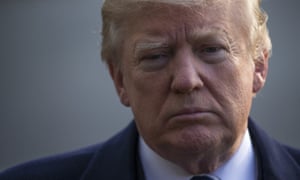On eve of international conference, US envoy says plan for more humane strategy is incompatible with US sovereignty
The Trump administration has pulled out of the United Nations' ambitious plans to create a more humane global strategy on migration, saying involvement in the process interferes with American sovereignty, and runs counter to US immigration policies.
The US ambassador to the UN, Nikki Haley, informed the UN secretary general, Antonio Guterres, at the weekend that Donald Trump was not willing to continue with an American commitment to the UN global compact on migration.
The announcement of the US withdrawal from the pact came hours before the opening of a UN global conference on migration scheduled to begin on Monday in Puerto Vallarta, Mexico.
In 2016, the 193 members of the UN general assembly unanimously adopted a non-binding political declaration, the New York declaration for refugees and migrants, pledging to uphold the rights of refugees, help them resettle and ensure they had access to education and jobs. The initiative had the enthusiastic backing of Barack Obama, and was embraced by Guterres as one of his major challenges for 2018.
The aim is to publish a global compact for safe, orderly and regular migration next year in time for adoption by the UN general assembly in September.
Louise Arbour, appointed as the UN's special representative to oversee the process, regards the global compact as a chance to shift world opinion on the need to address future migration, in the same way that the UN had managed to persuade the world it needed to address climate change. There are currently 60 million people who have been displaced worldwide.
The US decision to withdraw will delight Trump's "America first" political base, but will do little to improve his standing in developing countries.
The US mission to the UN said in a statement on Saturday that the declaration "contains numerous provisions that are inconsistent with US immigration and refugee policies and the Trump administration's immigration principles".
The UN had always insisted that the compact was never intended to be legally binding on any country, but instead was an attempt to create a shared understanding that migration flows are likely to increase, and need to be regularised by recognising the reality of state interdependence, as much as national sovereignty.
In a statement issued on Saturday, Haley said: "America is proud of our immigrant heritage and our longstanding moral leadership in providing support to migrant and refugee populations across the globe … But our decisions on immigration policies must always be made by Americans and Americans alone."
She said: "We will decide how best to control our borders and who will be allowed to enter our country. The global approach in the New York declaration is simply not compatible with US sovereignty."
The move, which is likely to put US-UN relations back in the deep freeze, came following pressure largely from the White House, as opposed to Haley herself.
The US has already pulled out of the UN climate change treaty and Unesco, the cultural heritage body, accusing the latter's leadership of an anti-Israeli bias.
The impact of Since you're here …
… we have a small favour to ask. More people are reading the Guardian than ever but advertising revenues across the media are falling fast. And unlike many news organisations, we haven't put up a paywall – we want to keep our journalism as open as we can. So you can see why we need to ask for your help. The Guardian's independent, investigative journalism takes a lot of time, money and hard work to produce. But we do it because we believe our perspective matters – because it might well be your perspective, too the migration pullout is more symbolic than practical, since the UN never had any illusion that it could control a member state's policies.

No comments:
Disclaimer: Opinions expressed in comments are those of the comment writers alone and does not reflect or represent the views of Voxpopuli
Post a Comment